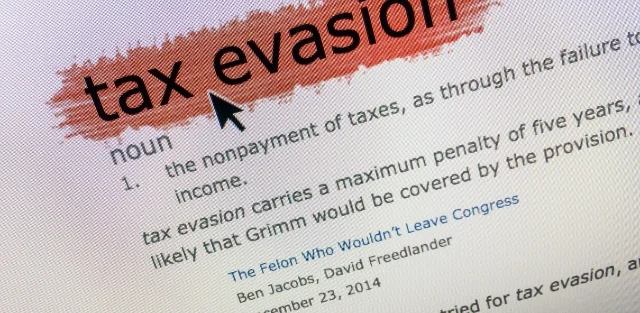In the complex world of finance, few terms are as often misunderstood or misused as “tax evasion” and “tax avoidance.” While both are related to reducing one’s tax burden, the difference between them is not merely literal. It is an important legal and ethical boundary that every individual and business must understand. Crossing this line can result in severe penalties, including hefty fines and imprisonment. At AI Tax Consultants, we believe in empowering our clients with knowledge, ensuring that they understand how to legally improve their tax position without venturing into the dangerous territory of tax evasion.
What is Tax Evasion? The Illegal Act
Firstly, Tax Evasion is unequivocally illegal. It involves deliberately misrepresenting your financial affairs to the tax authorities with the intent to underpay or not pay taxes that are legally owed. This often includes overt acts of deception, such as:
- Underreporting Income: Failing to declare all earned income, whether from employment, business activities, or investments.
- Overstating Deductions: Falsely claiming expenses or deductions that do not exist or are not legally permissible.
- Concealing Assets: Hiding money or assets, often in offshore accounts, to avoid reporting associated income or wealth.
- Falsifying Records: Creating fake invoices, receipts, or other documents to support fraudulent claims.
The key element here is intent to defraud. If an individual or entity knowingly and willfully attempts to escape their tax obligations through deceptive means, they are engaged in Tax Evasion. The consequences for such actions are severe, ranging from hefty financial penalties and civil charges to criminal prosecution and incarceration.
What is Tax Avoidance? The Legal Strategy
In contrast, tax avoidance is a perfectly legal and often highly encouraged practice. It involves using legitimate methods within the tax code to reduce your tax liability. This is achieved by taking advantage of various deductions, credits, exemptions, and loopholes that are expressly permitted by law. Examples of legal tax avoidance strategies include:
- Maximizing Deductions: Claiming all eligible business expenses, charitable donations, medical expenses, or mortgage interest.
- Utilizing Tax Credits: Taking advantage of credits for education, energy-efficient home improvements, or dependent care.
- Investing in Tax-Advantaged Accounts: Contributing to retirement accounts like 401(k)s or IRAs, which allow investments to grow tax-deferred or tax-free.
- Strategic Financial Planning: Structuring investments or business operations in a way that minimizes tax exposure, as allowed by current tax laws.
The critical difference here is that tax avoidance operates entirely within the legal framework, leveraging existing rules to minimize taxes without any deception or misrepresentation.
The Critical Distinction and the Role of Professional Guidance
Ultimately, the line between tax evasion and tax avoidance is one of legality and intent. One is a criminal act, while the other is smart financial planning. Navigating this complex landscape requires a deep understanding of tax law, which is constantly evolving. That is why professional guidance from experienced tax consultants is invaluable.
At AI Tax Consultants, we pride ourselves on our expertise in tax law. Our mission is to help clients improve their financial position through legitimate and ethical tax planning strategies. We meticulously analyze your financial situation to identify every allowable deduction and credit, ensuring you pay no more than you are legally owed, without risking the severe consequences of tax evasion. Partner with us to achieve financial efficiency with complete peace of mind.
FAQs:
- What is the main difference between Tax Evasion and tax avoidance? Tax Evasion is illegal and involves deliberate acts of deception to underpay taxes, while tax avoidance is the legal use of tax codes and regulations to reduce one’s tax liability.
- What are the consequences of Tax Evasion? The consequences of Tax Evasion are severe and can include substantial fines, civil charges, and criminal charges that may lead to imprisonment.
- How can a professional help me avoid Tax Evasion? A professional like AI Tax Consultants can help you avoid Tax Evasion by providing expert advice on legal tax avoidance strategies. They ensure you are compliant with all laws while helping you take advantage of every permissible deduction and credit.





